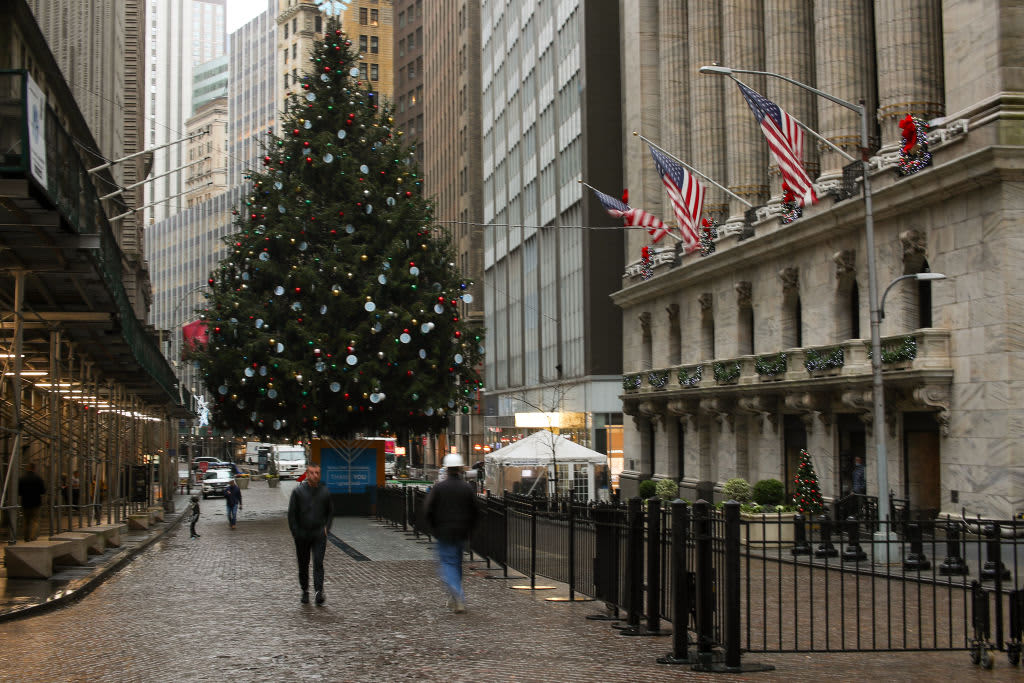
It's absolutely time to revisit the Wall Street versus Main Street argument that has ebbed and flowed through the course of the pandemic-induced economic lockdown, the subsequent recovery and where we are today.
I have said repeatedly on CNBC that, for the first time in my 36-year career, I care a great deal less about what happens on Wall Street than what IS happening on Main Street.
As Friday's unemployment report displayed in stark terms, the rehiring of workers has slowed considerably and may actually head into reverse as the pandemic rages on. Permanent layoffs are rising, and the labor force is shrinking again, not the stuff of which full-fledged economic recoveries are made.
Further, recent data show the pace of Main Street business failures accelerating.
In New Jersey alone, it is estimated that between 28%-31% of small business have shut, or will shut down, for good. Multiplied across 50 states and the pain will continue to hurt Main Street far more than Wall Street, since the public financial markets have no active discounting mechanism for the success or failure of small, private shops.
Lessons from the Depression
There are few precedents for this Main Street/Wall Street divide.
But, after plunging by 90% from September of 1929 to July of 1932, the stock market rallied sharply even during the depths of The Great Depression. Though not a perfect analog, the economy also staged a rebound but was, as is the case today, quite uneven and unforgiving to those in industries that were left vulnerable to anemic growth and those workers whose skills were no longer needed.
The Dow rallied from its 1932 low of 41 to nearly 150 by 1937, when a second wave of the Great Depression kicked in. But the stock market gains during the first wave of the Depression were fueled by both monetary and fiscal expansion, rather than a massive recovery in economic activity.
Indeed, the agriculture economy reeled from the effects of the "Dust Bowl," a pandemic in its own way that drove millions to migrate from the agricultural mid-west to other, hopefully more hospitable climes.
The tragic lot of the Joad family, chronicled in "The Grapes of Wrath" captured that mass movement in dramatic and depressing detail It is true that manufacturing rebounded, but not in every sector.
Banks failed at an astonishing rate and small businesses were lost by the tens of thousands. In addition, as we may see next year, foreclosures soared, rents went unpaid and food lines stretched for miles — the last of which we are already witnessing today, despite the social safety nets that were put in place after the Depression to ensure that bread and soup lines would never again be a necessity.
Need for fiscal help
As many as 50 million Americans face food insecurity this winter, or 15% of the entire American population.
Others have lost employer-paid health insurance during this national pandemic while still many more may lose government-funded support to pay their bills as they remain unemployed, under-employed or marginally attached to the workforce.
Even if Congress and the White House pass a "skinny," (more like stingy) aid package next week, it will not see the neediest through another three to six months of very lean times.
State and local governments are shrinking their payrolls and cutting services in the absence of federal assistance, another factor restraining the labor markets both today and likely for the foreseeable future.
The real story of this economy is almost entirely on Main Street, not on Wall Street.
The stock market has many reasons to continue its rally. Additional stimulus, however small, is helpful to risk assets, as is the easy money policy of the Federal Reserve.
But not nearly enough is being done to give Main Street and equal chance to recover and rally to all-time highs, to put in terms investors understand.
The two streets no longer intersect. In fact, Wall Street and Main Street are no longer even running parallel. Investors came to a fork in the road and took the one most easily travelled by.
Workers on the other hand came to that fork and landed squarely on the prongs.
For more insight from CNBC contributors, follow @CNBCopinion on Twitter.
"street" - Google News
December 05, 2020 at 12:55AM
https://ift.tt/2VFsNgI
Ron Insana: Wall Street is surging while Main Street is suffering - CNBC
"street" - Google News
https://ift.tt/2Ql4mmJ
Shoes Man Tutorial
Pos News Update
Meme Update
Korean Entertainment News
Japan News Update


No comments:
Post a Comment